Autumn 2025 Course Offerings
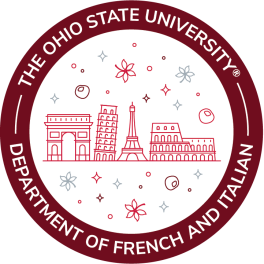
The most up-to-date list of course offerings is always available via View Schedule of Classes on BuckeyeLink.
Note on New GE Program
The University will roll out a new General Education program for new students beginning in Autumn 2022. These GE requirements will be called "General Education - New" or GEN.
Requirements for students under the previous General Education program will not change. They will continue to complete the same GE program — now called the "General Education – Legacy" or GEL.
FRIT Graduate Associates should work with their faculty advisors and the Academic Program Coordinator if enrolling in 8303 (teaching apprenticeship), 8998 (pre-candidacy), 8999 (dissertation research), or 8899 (dissertation workshop) hours.
Please refer to the Schedule of Classes via BuckeyeLink to view days and times of these offerings.
French Introductory Language - GEL Foreign Language; GEN: World Languages
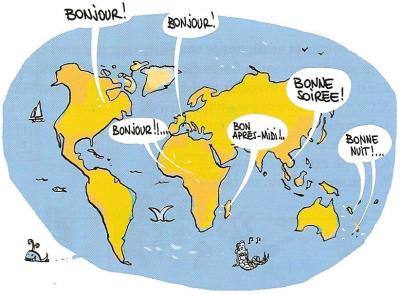
French 1101.01, 1102.01, 1103.01 - Beginning French I, II, and III Classroom (4 credit hours)
French 1101.21, 1102.21, 1103.21 - Beginning French I, II, and III Distance Learning (4 credit hours) 1101.21 also offered as an asynchronous learning option (4 credit hours)
French 1155.01 - Beginning French Review Classroom (4 credit hours)
French 1155.21 - Beginning French Review Distance Learning (4 credit hours)
Interested students can learn more about the modalities in which French basic-language sections are taught using this guide to French language (requires log-in).
Italian Introductory Language - GEL Foreign Language; GEN: World Languages
Italian 1101.03, 1102.03, 1103.03 - Beginning Italian I, II, and III Blended (4 credit hours)
Italian 1101.71, 1102.71, 1103.71 - Beginning Italian II and III Online (4 credit hours)
French 2101.01 – Introduction to French & Francophone Studies
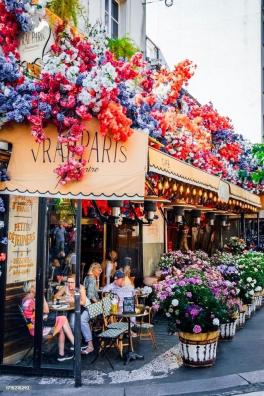
Professor Jennifer Willging, TR 12:45pm-2:05pm, Hagerty Hall 159, 3 credit hours, taught in French.
Welcome to the threshold to the French minor and major! In French 2101, you will have the opportunity to practice and improve your reading, writing, listening, and speaking skills in French, as well as to continue learning about French & Francophone literatures and cultures through reading, viewing, and interpreting authentic literary and visual texts from around the Francophone world.
This lively course serves as a bridge between language courses (1101-1103) and upper-level courses in French. By emphasizing all four skills (listening, speaking, reading, and writing), it will improve your proficiency and prepare you for further coursework in language, literature, culture, and film and for a minor or major in French or French and Francophone Studies. In it you will interpret and analyse both in oral discussion and in writing a variety of texts (short stories, films, songs, posters, etc.) from France and the Francophone world. Some grammar points will be reviewed, although grammar will be covered more intensely in FR 3101, which may be taken either at the same time as or after FR2101.
French 2101.61 - Introduction to French & Francophone Studies I.I.
Instructor TBD, Online Individualized Instruction (I.I.), 1-3 credit hours, taught in French
Techniques for reading and interpreting different types of texts from the French-speaking world: stories, poetry, plays, films, music, and ads while building vocabulary, comprehension, speaking and writing skills.
Prereq: 1103.01, 1103.21, or 4 cr hrs of 1103.51 or 1103.61, or permission of instructor. Not open to students with credit for 2101.01, 2101.01H, or 2101.51. Repeatable to a maximum of 3 cr hrs or 3 completions. This course is available for EM credit.
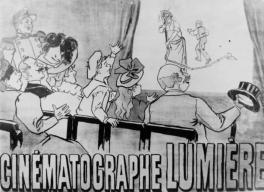
French 2801 - French Cinema - GEL Visual and Performing Arts, GEN Foundation: Literary, Visual & Performing Arts
Professor Margaret Flinn, TR 9:35am-10:55am, Mendenhall Laboratory 125, 3 credit hours, taught in English
Explore French cinema from its pioneering beginnings to the present day. Get to know the major eras in the history of French Cinema, such as the silent era, Poetic Realism, the Tradition of Quality, the New Wave, and modern French cinema, all within the context of French culture. Learn to discuss film as a text and talk about technical aspects like framing, mise-en-scène, and shot composition. The course is taught in English and all films are subtitled. No background in French or film studies is necessary.
French 2803.01 - Paris - GEL: Cultures & Ideas; GEN Theme: Lived Environments

Professor Kate Schlosser, W 4:10pm-5:20pm, ONLINE, 3 credit hours, taught in English
What was the city of Paris like in 1789, and how have its geography and society evolved over the last two centuries? By reading and viewing representations of Paris in a variety of media (maps, paintings, photographs, films, and literary and historical texts), we will explore both how the city’s landscape has shaped its society and how its increasingly diverse society has in turn shaped and transformed its landscape to suit Parisians’ evolving needs, desires, and caprices. Each two-week unit will treat representations of a specific event or era in Parisian history that had a significant impact on the city’s organization, architecture, and/or demography, and together the units will give us a general understanding of Parisian history over the last 230 years and of the multiple ways in which that history has been represented, and thus manipulated for various purposes.
French 3101 - French Grammar Review
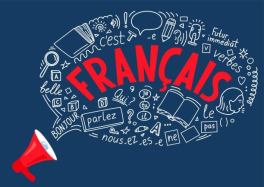
Dr. Kelly Campbell, MWF 9:10am-10:05am, Hagerty Hall 251, 3 credit hours, taught in French
“Bootcamp French” in the words of a former student, this course improves your ability to speak and write. We will review grammar “rules”, focus on how context creates meaning, and strengthen vocabulary by studying false cognates . Through online discussions, personal narratives and opinion pieces, students will practice speaking and writing more nuanced, accurate French.
Prereq: 1103.01, 1103.21, 4 cr hrs of 1103.51 or 1103.61, or permission of instructor. Prereq or concur: 2101.01, 2101.01H, or 3 cr hrs of 2101.51 or 2101.61. This course is available for EM credit.
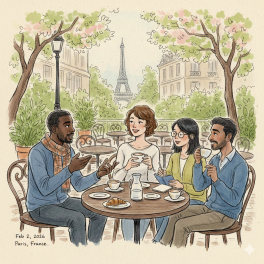
French 3103 - French Conversation
Dr. Darrell Estes, TR 3:55pm-5:15pm, Derby Hall 030, 3 credit hours, taught in French
French 3101 is a course designed to improve students’ conversational French abilities on a wide variety of topics. Using various media (e.g., podcasts, music, video, print, and digital media), students will converse one-on-one and in groups on a variety of topics important in French and Francophone cultures (current events, heritage/history, the arts, broadcast and cinematic media, literature, etc.).
The purpose of this course is for students to develop their conversational abilities through active listening and reading using the above-mentioned media, as well as speaking. Through a combination of listening, reading, and speaking, conversational ability will honed and fluency developed. Likewise, the purpose of this course is not to develop the “correct” accent. The Francophone world is composed of a wide variety of accents, all of which are valid, and all of which we will experience throughout this course.
This course is not open to those students who are native speakers or who have already developed near-native conversational abilities in French.
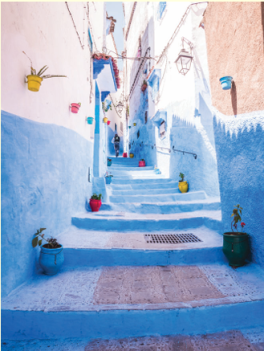
French 3202 - Introduction to Francophone Literature
Professor Ryan Joyce, TR 11:10am-12:30pm, Derby Hall 049, 3 credit hours, taught in French
What does it mean to be trapped—by borders, language, memory, or cultural norms? And how do people fight back? This course explores stories of capture and confinement in francophone literature—emphasizing the voices that resist, escape, and imagine alternative futures.
Spanning the Amazon, Caribbean, Maghreb, sub-Saharan Africa, the Indian Ocean and Pacific, and Louisiana, we will examine how colonialism, dictatorship, environmental destruction, displacement, and social exclusion shape spaces where French is or was a dominant language—and how writers and cultural producers challenge these forces. Course content includes Amerindian folklore, oral histories, colonial ethnographies, anti-colonial narratives, decolonial theory and art, poetry, theater, graphic novels, and short fiction exploring both confinement and strategies of liberation.
Key themes include:
- Colonial Capture & Anti-Colonial Resistance – How conquest, enslavement, and linguistic domination shape francophone spaces, and how writers reclaim their histories.
- Political Captivity & Dissent – The literature of dictatorships, exile, imprisonment, and protest, including the role of art movements in fighting authoritarian regimes.
- Social & Sexual Confinement – Race, gender, sexuality, and class as forces of oppression and self-definition.
- Ecological Captivity & Liberation – Environmental injustice, climate crises, land dispossession, Pacific nuclear justice, and Caribbean ecological sovereignty.
- Migration, Borders & Displacement – How movement across and beyond francophone spaces is shaped by history, violence, and the search for belonging, with a focus on migrant narratives and the politics of asylum.
Students will analyze how literature in many forms turns captivity into a catalyst for reinvention, resistance, and reimagined worlds while refining their critical thinking, discussion, research, and writing skills in French.
May count toward French minor or French or French and Francophone Studies majors.
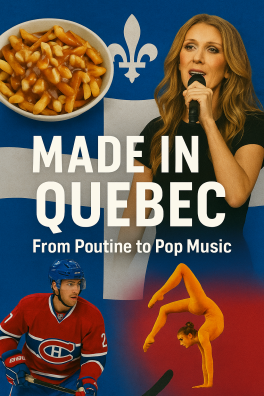
French 3503 - Medical French
Dr. Anne Mutidjo, WF 2:20pm-3:40pm, Hagerty Hall 045, 3 credit hours, taught in French
Designed especially for students interested in pursuing a variety of health professions and wishing to add value to their expertise in healthcare fields. Students learn how to interact effectively in French with patients and patients' families from various cultural backgrounds, and/or to practice their profession in a Francophone context, at a mid- to high-intermediate level of French.
Prereq: French 2101.01 or 2101.61.
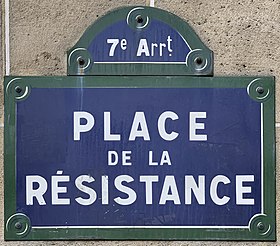
French 3803 - Cultures of Resistance - GEN Theme: Citizenship for a Diverse & Just World
Professor Adela Lechintan-Siefer, TR 9:35am-10:55am, Hagerty Hall 050, 3 credit hours, taught in English
The Resistance required secrecy, imagination, and courage to face the Nazi occupation during World War II. It is part of a long history of struggle for freedom and equality with pivotal moments such as the French revolution, Haitian Revolution, and decolonization.
In this course, we will explore and analyze how the concept of citizenship through resistance has been represented in the literature, film, music, and comics of the French-speaking world. We will examine works of art created to engage with cultural activism at crucial historic moments. We will study how individuals have been exercising the right to effect change in society by assuming agency in the face of various forms of oppression and power imbalance and apply these lessons to our own ideas for creating a more just and diverse world.
Variable topics in French and Francophone literatures and cultures
French 3804 - French Kiss: Love and Sex in the French Tradition - GEN Theme: Traditions, Cultures, and Transformations
Professor Jennifer Willging, TR 3:00pm-3:55pm, ONLINE, 3 credit hours, taught in English
Why have the French culture, people, and language stereotypically been associated with love and sex since the Middle Ages? (think of the love-sick French skunk, Pepe le Pew, for a modern example of this association). In this GE course taught in English, we will first explore stories, films, poems, songs, paintings, and other cultural products that offer idealized, "proscriptive" representations of love and sex in the French tradition (that is, materials that present what their producers believe love and sex “should” look like). We will then examine materials whose representations deviate in one or more ways from more traditional notions of this fundamental domain of human life. We will ask such questions as, what kinds of love or sex have met with approval in the French (and more widely, Western) tradition at various moments over the last millennium? What kinds have met with censure? What historical and cultural forces determine such rules? What happens when sub-groups within a society (like women, young people, LBGTQIA individuals, and racial, ethnic, or religious minorities) refuse to subscribe to dominant conceptions of love and sex? What kinds of rebellions, backlashes, and compromises occur when the ideas and behaviors of individuals or groups in this realm clash? We will also ponder what other areas of human tradition (work, family, friendship, education, dress, etc.) might also be subject to and thus shaped over time by the same kinds of historical forces.
May count toward French minor or French or French and Francophone Studies majors.
French 4100 - Advanced French Grammar for Contemporary Contexts
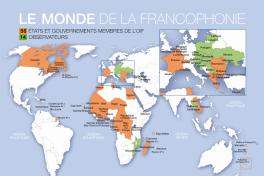
Dr. Anne Mutidjo, TR 12:45pm-2:05pm, Derby Hall 030, 3 credit hours, taught in French
Why study advanced French grammar if you are interested in international affairs? Human rights? Food? Finance? Migrants? Medicine? To follow these issues in the francophone media, you need to master the written language by becoming a more educated, informed reader, as well as a more skilled, articulate writer of French.
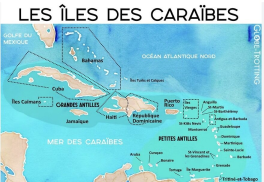
French 4401 – Le féérique et le fantastique: Enchantment in French-language texts and culture
Professor Sarah-Grace Heller, WF 11:10am-12:30pm, Derby Hall 049, 3 credit hours, taught in French
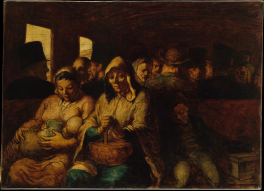
French 5401 - Louis XIV to World War I
Undergraduate: 35030 / Graduate: 35028
Professor Benjamin Hoffmann, TR 2:20pm-3:40pm, Hagerty Hall 359, 3 credit hours, taught in French
The aim of the course is to cover three hundred years of French history. It will focus on the major cultural and political events that have shaped the image of France over the centuries and have given rise to one of the most dynamic and influential cultures in the world. The themes and periods to be studied and illustrated via texts and films include the Age of the Sun King, the Enlightenment, the Age of Revolutions, the First and Second Empires, the Restoration, the Monarchy of July, the Second and Third Republic, the history of colonialism, slavery, and anti-slavery movements, and World War I. Authors to be studied will include Descartes, La Fontaine, La Bruyère, Saint-Simon, Montesquieu, Voltaire, Diderot, Rousseau, Olympe de Gouges, Beaumarchais, Balzac, Dumas, Hugo, Zola, Proust, Apollinaire, and Céline. Other works to be examined will include paintings by Watteau, Fragonard, Monet, and Renoir, as well as cinematic representations of the period by Guitry, Leconte, Enrico, and Tavernier. The course will be conducted in French. Prerequisites: Fr 3101 and Fr 3401.
French 5601 - Center of Excellence Colloquium
Undergraduate: 35224 / Graduate: 35223
Professor Benjamin Hoffmann, ONLINE, 1 credit hour, taught in French
Learn more about the French 5601 workshop through this short video by Professor Hoffmann!
This dynamic workshop offers students a unique opportunity to engage with world-renowned scholars and award-winning novelists visiting The Ohio State University. You’ll attend four exclusive events featuring international experts who will share their groundbreaking work. You'll also have the chance to meet and have lunch with these guest speakers, gaining personal insights into their research and creative processes while practicing your French outside the classroom. As part of the French Press Literary Channel, you’ll either interview a French-speaking author or record a short video review of a recent novel. This workshop is a great option for maintaining your French language skills, especially if you’re unable to fit a 3-credit course into your busy schedule. The assignments are designed to be very flexible and fit around your existing commitments. No heavy workload—just an exciting opportunity to connect with leading voices in French and Francophone culture!
Prereq: Grad standing; or 3101 or equivalent. Repeatable to a maximum of 6 credit hours. This course is graded S/U.
Italian 2055 - Mafia Movies - GEL: Visual & Performing Arts; GEN Foundation: Literary, Visual, & Performing Arts

Dr. Joe Perna, WF 2:20pm-3:40 pm, ONLINE, 3 credit hours, taught in English
*This class is fully online. Distance synchronous with asynchronous components
The Mafia in Italy is referred to as an octopus as the organization pervades almost every facet of Italian cultural life. Tony Soprano, Don Vito and Michael Corleone, Lucky Luciano, Robert De Niro, Martin Scorsese, or Christopher Moltisanti are some of the figures that contribute to the myth of the Italian and Italian-American Mafias. Others, such as Jonas Carpignano, Peppino Impastato, and Roberto Saviano explore a new cinematic wave about organized crime. In this course we watch Italian and American mafia movie and television hits, and explore the myth of the Mafia that is so widespread in American popular culture, and trace its histories and receptions as it passes across time and through a variety of cinematic styles. We will question whether there exists a unique American or Italian cinema and television treating Mafias, in its polymorphic nature, and explore how filmmakers from the two countries approach the subject in dissimilar fashions, especially in terms of stereotyping, gender, politics, and representations of violence and alluring criminals.
This course can count as a course taught in English toward the Italian minor and the Italian or Italian Studies majors.

Italian 2056 - Love & Difference on the Italian Screen - GEL Diversity: Global Studies, GE Foundation: Literary, Visual & Performing Arts, GE Foundation: Race, Ethnicity & Gender Diversity
Professor Jonathan Mullins, TR 2:20pm-3:40pm, Fontana Laboratory 2020, 3 credit hours, taught in English
Love has long been a theme that has dominated Italian film and television. But how have such representations of love been conditioned by questions of identity including race, gender, sexuality and ethnicity? This course explores this question through representations of eros, romance and friendship in a variety of moving images. We will engage with silent film that looks at what it means to be a Southern Italian woman (Assunta Spina) to more recent film on cross-cultural friendship between migrants in Shun Li and the Poet, ands interracial romance in Summertime. We study how the theme of love condenses a variety of concerns and anxieties about racial, gender, sexual and ethnic identity, with attention to how these forms of identity emerge in the context of 20th and 21st century Italy. Students will reflect on what it means to study such forms of identity in the Italian context, and also on their own experiences and biases that they bring to the study of race, ethnicity, gender and sexuality as students in Ohio.
Never study cinema before? No worries. A crucial component of the course will be dedicated to studying the aesthetics of narrative cinema, and also understanding it as a complex industrial product with its own systems of production and reception.
Italian 2102 - Contemporary Italian Society
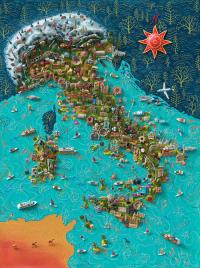
Professor April Weintritt, TR 9:35am-10:55am, Hagerty Hall 259, 3 credit hours, taught in Italian
How did we arrive at the contemporary forms of Italian culture that one can find in Rome today? As the adage goes, "All roads lead to Rome," and indeed diverse trajectories have brought immigrants from within Italy and from abroad to call the capital city home. Deep and lasting transformations of Italian culture and society are more and more apparent; the influence of Italy’s institutions is waning, as a result of shifting and broadening traditions, values, and perspectives of what was once dominant and normative Italian cultural beliefs on religion, gender, family, and more. All these transformations are at play in the principal text of this course: the best-selling 2006 novel Clash of Civilizations for an Elevator in Piazza Vittorio by Amara Lakhous, an acclaimed Algerian-Italian author. Particularly when reading the principal novel but also in additional readings and videos, we will delve into the convergence of 20th and 21st century Italian cultural history and language expression through analysis of a variety of contemporary speech registrars, dialects, European cultural reference points, and immigration and refugee crises at the turn of the century.
In this course we explore modern and contemporary Italian society as we focus on the four language skills: listening, reading, writing, and speaking. Since you are transitioning from the elementary to the intermediate level, more emphasis will be placed on developing your reading skills, so you will be exposed to a lot of authentic Italian texts of different lengths and in different genres. However, your listening, writing, and speaking skills will not be ignored! Grammar will be reviewed and tested throughout the course.
The targeted structures are a review of nouns and adjectives; regular and irregular present indicative verbs; the passato prossimo, the imperfect, the past perfect (trapassato prossimo) and the remote past (passato remoto); the subjunctive mood, hypothetical constructions, and relative and interrogative pronouns.
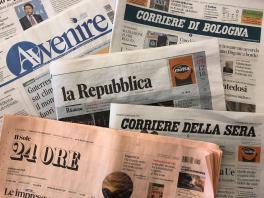
Italian 3220 - Italian Culture
Professor Jonathan Combs-Schilling, TR 9:35am-10:55am, Hagerty Hall 251, 3 credit hours, taught in Italian
This course provides an overview of major epochs, events, issues and figures in the cultural history of the Italian peninsula from Ancient Rome to the 20th century. We approach these rich and varied histories through readings, music, fine art, film and other media that embrace both “high” and “popular” culture. Oral skills are refined through class discussion and oral presentations. Students will develop and refine their oral and writing skills and be introduced to new structures (such as ordinal numbers, comparatives of equality and inequality, and prepositions). Course conducted entirely in Italian.
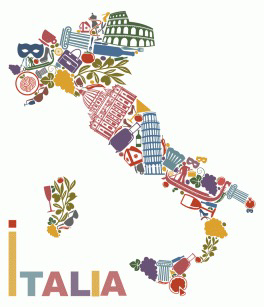
Italian 4225 - Italian Identities
Professor Jonathan Mullins, TR 3:55pm-5:15pm, Hagerty Hall 351, 3 credit hours, taught in Italian
What does it mean to be Italian, and how is such a socio-cultural identity complicated by questions of nationality, region, race and gender? Through four units, each dedicated to one of these aspects of identity, this course will seek to answer these two questions. It will do so though investigation of, on one hand, written and audiovisual sources, and on the other, interviews with Italians in which students will prepare questions and analyze their responses as evidence of larger social, cultural, and political dynamics.
FRIT 3054 - The 21st-Century Skill: Intercultural Competence for Global Citizenship - GEL Diversity: Global Studies; GEN Theme: Citizenship for a Diverse & Just World
Taught in English, 3 credit hours
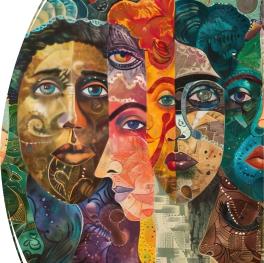
27256: Professor Kate Schlosser, TR 9:35am-10:55am, Dreese Laboratories 369
27724: Professor Janice Aski, TR 12:45pm-2:05pm, Dreese Laboratories 369
28064: Dr. Salome Fouts, WF 2:20pm-3:40pm, Dreese Laboratories 369
28065: Sandhya Shankar, TR 2:20pm-3:40pm, Journalism Building 270
28066: Dr. Kelly Campbell, WF 11:10am-12:30pm, Mendenhall Laboratory 175
Intercultural competence is an essential characteristic for becoming globally-minded and functioning in multiple, diverse, local and non-local networks, and for that reason it has been identified as being among the top ten skills necessary for succeeding in the 21st century. Achieving the skills, knowledge, behaviors and attitudes of interculturally competent global citizens is a lifetime endeavor, so in this course you will acquire the foundations for the journey. This course is divided into four modules: 1) Foundational concepts; 2) Intercultural interactions; 3) Intercultural (communicative) competence; 4) Intercultural competence and citizenship. We will begin by exploring the complexities of the term ‘culture’ and how culture shapes our understanding of ourselves and others, our identity, and our worldview. You will explore your own cultural background by doing a cultural autobiography. You will delve into how implicit biases and stereotypes impact your interactions with others and learn to engage in inclusive practices that make you a better team player by participating in an investigative intercultural team project. In addition, you will learn the unique ways in which learning a world language and experiencing other cultures contribute to the development of intercultural competence.
This course meets the goals and expected learning outcomes of the GE theme category: Citizenship for a just and diverse world. It also counts as a course taught in English for the Italian/Italian studies majors and minor, and the French/French and Francophone studies majors and minor. This course also counts toward the ASC Leadership major.

FRIT 3061 - Mediterranean Food Cultures - GEL Cultures and Ideas, GEL Diversity: Global Studies, GEN Theme: Lived Environments & Theme: Sustainability
Dr. Mark Anthony Arceno, TR 2:20pm-3:40pm, McPherson Hall 1015, 3 credit hours, taught in English
What do bacalhau, falafel, moussaka, paella, ratatouille, risotto, spanakopita, tabbaouleh, and tagines have in common (other than perhaps making your mouth water)? They are among a host of diverse dishes that represent the rich, complex, and migratory tapestry of “Mediterranean food.” Considering food as more than just a biological necessity, this course approaches food as a way of talking about culture and identity in an ever-changing world full of human and environmental interactions. How does the food we and others eat help define the spaces we inhabit and call home? What do changing landscapes mean for the availability of ingredients we might otherwise take for granted? In what ways are these relationships represented in film, literature, music, and social media? With specific regard to local, regional, and national traditions of countries that surround the Mediterranean Sea, we will spend our semester together learning about the “taste of place” and why it is so difficult to define.
This course can count as a course taught in English towards FRIT minors and majors. Please consult specific degree requirements for more information.

French 5401 - Louis XIV to World War I
Undergraduate: 35030 / Graduate: 35028
Professor Benjamin Hoffmann, TR 2:20pm-3:40pm, Hagerty Hall 359, 3 credit hours, taught in French
The aim of the course is to cover three hundred years of French history. It will focus on the major cultural and political events that have shaped the image of France over the centuries and have given rise to one of the most dynamic and influential cultures in the world. The themes and periods to be studied and illustrated via texts and films include the Age of the Sun King, the Enlightenment, the Age of Revolutions, the First and Second Empires, the Restoration, the Monarchy of July, the Second and Third Republic, the history of colonialism, slavery, and anti-slavery movements, and World War I. Authors to be studied will include Descartes, La Fontaine, La Bruyère, Saint-Simon, Montesquieu, Voltaire, Diderot, Rousseau, Olympe de Gouges, Beaumarchais, Balzac, Dumas, Hugo, Zola, Proust, Apollinaire, and Céline. Other works to be examined will include paintings by Watteau, Fragonard, Monet, and Renoir, as well as cinematic representations of the period by Guitry, Leconte, Enrico, and Tavernier.
The course will be conducted in French. Prerequisites: Fr 3101 and Fr 3401.
French 5601 - Center of Excellence Colloquium
Undergraduate: 35224 / Graduate: 35223
Professor Benjamin Hoffmann, ONLINE, 1 credit hour, taught in French
Learn more about the French 5601 workshop through this short video by Professor Hoffmann!
This dynamic workshop offers students a unique opportunity to engage with world-renowned scholars and award-winning novelists visiting The Ohio State University. You’ll attend four exclusive events featuring international experts who will share their groundbreaking work. You'll also have the chance to meet and have lunch with these guest speakers, gaining personal insights into their research and creative processes while practicing your French outside the classroom. As part of the French Press Literary Channel, you’ll either interview a French-speaking author or record a short video review of a recent novel. This workshop is a great option for maintaining your French language skills, especially if you’re unable to fit a 3-credit course into your busy schedule. The assignments are designed to be very flexible and fit around your existing commitments. No heavy workload—just an exciting opportunity to connect with leading voices in French and Francophone culture!
Prereq: Grad standing; or 3101 or equivalent. Repeatable to a maximum of 6 credit hours. This course is graded S/U.

FRIT 7600 - Teaching World Languages at the College Level
Combined section with Germanic Languages, Literatures, & Cultures - #28286
Professor Wynne Wong, T 10:00am-12:00pm, Hagerty Hall 206, 3 credit hours
This course provides instructors with foundational knowledge of second language acquisition (SLA) theory and research to guide their teaching practices. Emphasizing creativity and flexibility, students will learn how to design pedagogically sound activities that are not only aligned with SLA principles but also tailored to their unique teaching contexts. The course encourages teachers to adapt research-based strategies to their individual classroom needs, fostering innovation in lesson planning and student engagement.
Prerequisite: Graduate teaching associate in the Department of French and Italian, or permission of instructor. Not open to students with credit for French 7301 or Italian 7301.

FRIT 8602 - Comparative French & Italian - Care, Intimacy, & Politics
Professor Qian Mauro Liu, W 5:30pm-8:00pm, Hagerty Hall 206, 3 credit hours, taught in English
What would it mean to re-orient our understanding of social life through the concept and practice of care? Despite its pervasive role in human life, care has long been undervalued as a supplementary service—a solicited reaction rather than an actual form of knowledge. In many cases, care is valued only after a breakdown, crisis, failure, illness, or trauma. Its appearance often signals a triumphant positivism and an uncritically recuperative hope. In this seminar, we will reposition “care” as a fundamental political–ethical concept and rethink care as a way of organizing kinship and political structures. Throughout the semester, we will examine literary and visual works through questions such as: How do mechanisms of care resystematize a breakdown or crisis? How would intentions or acts of care redraw the boundaries of intimacy and distance? In what situations can care be considered a relational and mutual process for both the caregiver and the cared-for? How does care propose new spatial-temporal coordinates? What role does care play in nuancing the limits of the human and the non-human?
This course will introduce students to theoretical texts on care and related topics (migration, feminist resistance, queer intimacy, disability, friendship, posthumanism). Some of the theorists we will engage with include Jacque Derrida, Juan Tronto, Giorgio Agamben, Michel Foucault, Carol Gilligan, Hannah Arendt, Silvia Federici, Boris Groys, Sarah Ahmed, Fabienne Brugère, Roberto Esposito, Daniel Engster, and Maria Puig de la Bellacasa. We will also explore a wide range of literary and visual texts by Annie Ernaux, Ousmane Sembène, Sarah Bouyain, Charlotte Delbo, Philippe Lioret, Emanuele Crialese, Andrea Segre, Elena Ferrante, Alice Rohrwacher, Domenico Starnone. All secondary materials will be available in English; doctoral students in French and Italian are encouraged to read these texts in their original language.
FRIT Graduate Associates should work with their faculty advisors and the Academic Program Coordinator if enrolling in 8303 (teaching apprenticeship), 8998 (pre-candidacy), 8999 (dissertation research), or 8899 (dissertation workshop) hours.
